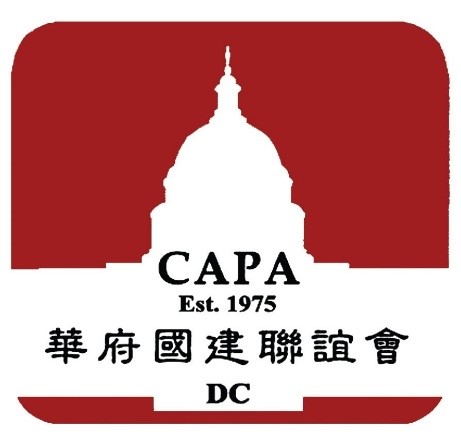Online Information Session with CAPA Presents Education Policy and Prospects

On April 9, 2021, the Education Division, and the Taiwan Academy(responsible for promoting Taiwan’s culture) at the Taipei Economic and Cultural Representative Office in the U.S. (TECRO) and the Chinese–American Professionals Association of Metropolitan Washington DC (CAPA) co-hosted an online evening session on Education/Culture Policy and Prospects.
CAPA describes itself as “a United States non-profit organization. Its membership comprises scholars and professionals who are from Taiwan and reside in the Metropolitan Washington DC area. Established in 1975, CAPA has evolved over the past 44 years into an organization that promotes academic and scientific interest and knowledge among Taiwan American scholars and professionals in the Metropolitan Washington DC area.”
The director of the Education Division, Mr. Yuri Yao-Tsong Chih talked first about a draft legislative bill on industry-academia cooperation and collaboration in critical areas that is currently being reviewed by Taiwan’s Legislative Yuan. Its aim is to strengthen industry-academia cooperation to match personnel training to specific industry needs. He then gave details about a number of key initiatives: the Ministry of Education’s Higher Education Sprout Project 2018–2022, the Yushan Scholar Program, Benchmark Schools for the Bilingual National Goal, and the new Best Huayu Program. He encouraged CAPA scholars and experts working in different American universities to explore opportunities to set up cooperative partnerships with universities in Taiwan. He assured them that the Education Division can provide them with related assistance to do so.
A Q&A session then followed, moderated by Elaine Chang, the 45th president of CAPA and an expert in the legal field. There were questions about the procedures to recruit Taiwanese Mandarin teachers to work in the U.S., the kinds of visa such Mandarin teachers hold, the attitude and aspiration of younger Taiwanese students, the significance of fundamental scientific research, and government sponsorship.
The online session lasted about two and half hours, and afterwards many participants expressed their appreciation and provided positive feedback about it to TECRO.